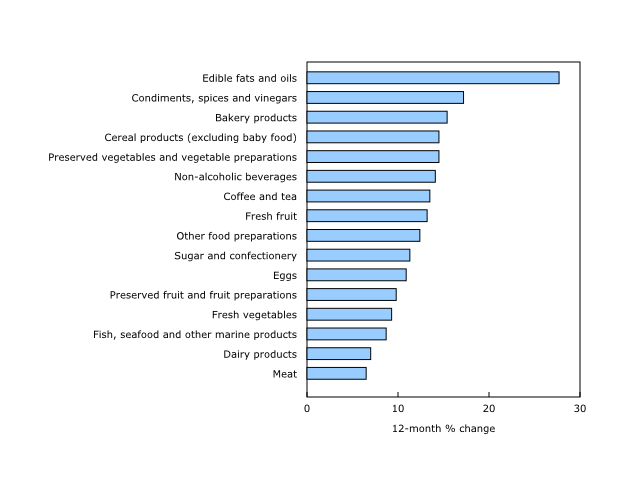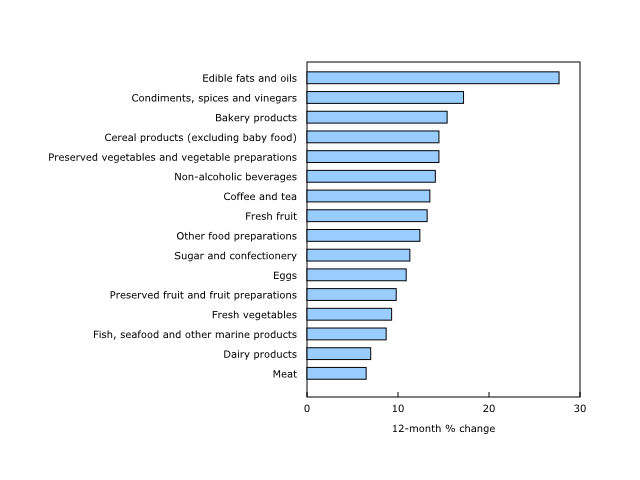Canada Markets
Canada Food Price Inflation Moves Higher
Statistics Canada reports the August Consumer Price Index increased by 7% year-over-year, falling for a second month after increasing by 7.6% in July and reaching a peak of 8.1% in June. This was slightly lower than the 7.2% expected by economists. Lower gasoline prices were the major factor that led to the moderating price growth in August.
The agency reports a faster growth in food inflation remains a challenge, which acted to moderate the slowing of overall prices that make up the CPI.
Food prices purchased from stores increased by 10.8% in August, reported to be the fastest rate of growth since 1981. It is interesting to note that Statistics Canada charts highlight the main contributors to the 12-month and 1-month change in CPI and include a 7.4% increase in food purchased from restaurants on the 12-month chart but neither chart includes food purchased from stores, clearly an issue they may prefer not to discuss.
In November 2021, the rate of inflation for food purchased from stores equaled the rate of inflation for all items, at 4.7%. Since then, the rate of price increases for food purchased from stores has exceeded the overall rate of inflation for all items each month, while the differential has increased in seven of the nine months. This spread reached a high in August at 3.8 percentage points.
P[L1] D[0x0] M[300x250] OOP[F] ADUNIT[] T[]
Sylvain Charlebois, director of Agri-Food Analytics Lab at Dalhousie University describes the situation to BNN Bloomberg as "painful," noting the last period of high food inflation in 1981 lasted only a few months. His research indicates 24% of Canadians are purchasing less food.
The fight against inflation will remain a challenge for policy makers for many reasons. To name a few:
-The Canadian dollar dipped below $.75 CAD/USD on Sept. 20, reaching its weakest trade against the USD in almost two years (spot dollar). This adds to the cost faced in importing food.
-While gasoline gasoline prices are seen moderating, this is not the case with diesel, with government data showing the weekly price for diesel reaching a September high of $1.99/liter, up from the August weekly high of $1.8970/liter. The cost of transporting goods across the wide expanse of Canada remains stubbornly high.
-Higher interest rates used to fight inflation will act to increase the cost faced by the grocery industry, which will be passed on to consumers.
-The federal government's plan to continue increasing the carbon tax will continue to add to the cost structure faced by grocers, again borne by consumers.
-Global energy markets and grain markets remain a wildcard.
Cliff Jamieson can be reached at cliff.jamieson@dtn.com
Follow him on Twitter @Cliff Jamieson
(c) Copyright 2022 DTN, LLC. All rights reserved.






Comments
To comment, please Log In or Join our Community .